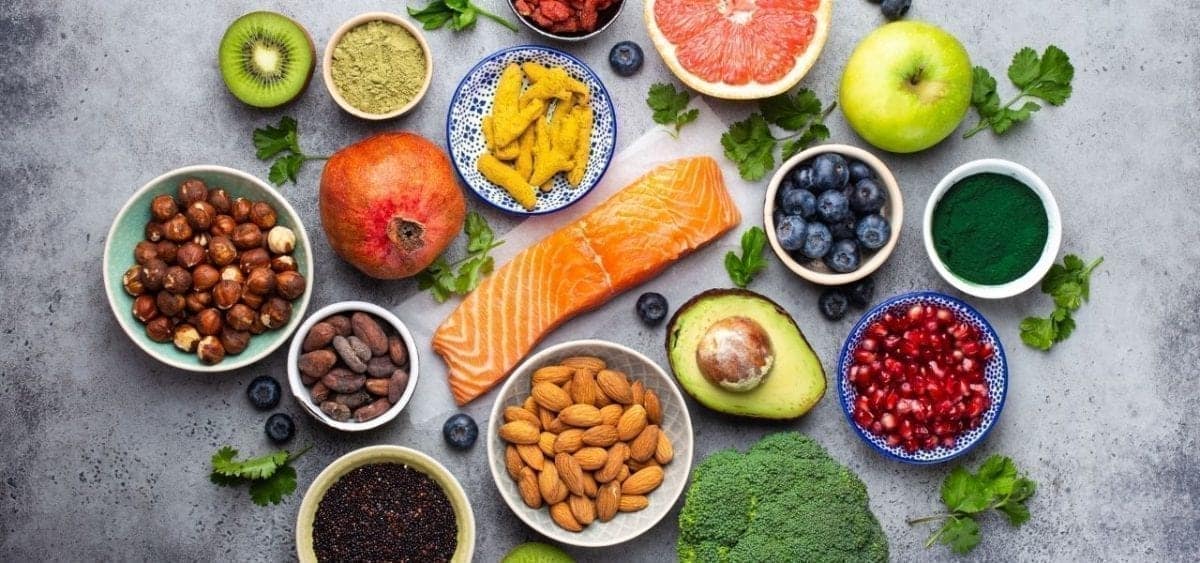Home > Hormones > Hormone health & solutions > Having A Holistic Diet When You Don’t Like Tea


I used to hate herbal tea; I thought it was boring and bitter. And it took me a while to find ones that I liked. But when it comes down to it, so much of the holistic health world we see is rooted in teas, tonics, herbal blends and powders. Which are convenient, and you can learn more about some teas we like here, but they don’t suit everyone. We don’t all like teas and herbal powders, so how can we incorporate a more holistic diet into our lifestyles, without compromising on our taste?
And no, I don’t just mean spinach and kale. There are loads of superfoods out there to give you flavour and culinary variety:
Other great foods include olive oil, fish, avocados, turmeric, mushrooms, sweet potato and seaweed.
Where possible, eat your fruits and vegetables raw and whole to get the full benefits of all the nutrients they carry.
Buying locally and within season is always better and healthier than eating food that has been imported from the other side of the world. Now obviously here in England, that narrows down the range since it’s not really the ideal climate for banana growing. But when it comes to apples, pears, berries, potatoes and other veggies, sourcing them locally ensures a higher quality. They also usually organic, and freer from harmful pesticides and chemicals better suited for a holistic diet.
Sodium is a leading factor to rising risks of high blood pressure or hypertension, and we all know the dangers of too much sugar. Try replacing sugar or sweeteners with natural alternatives, like honey, taking advantages of the many benefits it has to your health and improve your diet.
We don’t need to tell you this, do we? Water is hugely important, and you can notice significant changes in both body and mood when you start ensuring that you are drinking enough water each day. For adult women, the recommended amount is about two litres.
Switch from hydrogenated fats and saturated fats to alternatives like coconut oil, extra virgin olive oil or flax seed oil.
So, whilst we here at Selfish Darling always encourage a good cup of tea or herbal blend, they are not necessary for taking a more holistic approach to your diet. There are alternatives that suit everyone, from fresh products to spices and seeds. Start off small by upping your water intake, switch oils for cooking and try eating vegetarian once a week. It doesn’t have to break the bank, and you don’t have to sacrifice taste to be healthy. You don’t like tea? Have an omelette.

-


Dr Singh is the Medical Director of the Indiana Sleep Center. His research and clinical practice focuses on the myriad of sleep.

Understanding the female libido Before we can answer, “Does progesterone increase sex drive?” it’s important to gain a better understanding of what a “sex drive” means. The female libido or sex drive is how much you desire sexual activity. Every

Why am I so hungry before my period? Women who experience an increased appetite before period starts can feel frustrated that they’re craving foods they don’t normally eat. You may be wondering, “Why do I eat so much before my

Understanding cycle syncing workouts Did you know that evidence shows a link between the impact of exercise and menstrual cycle phases in women? It’s true. Women are at a higher risk of foot and ankle injury during workouts than men,
Hormona© 2025, All Rights Reserved
| Cookie | Duration | Description |
|---|---|---|
| cookielawinfo-checkbox-analytics | 11 months | This cookie is set by GDPR Cookie Consent plugin. The cookie is used to store the user consent for the cookies in the category "Analytics". |
| cookielawinfo-checkbox-functional | 11 months | The cookie is set by GDPR cookie consent to record the user consent for the cookies in the category "Functional". |
| cookielawinfo-checkbox-necessary | 11 months | This cookie is set by GDPR Cookie Consent plugin. The cookies is used to store the user consent for the cookies in the category "Necessary". |
| cookielawinfo-checkbox-others | 11 months | This cookie is set by GDPR Cookie Consent plugin. The cookie is used to store the user consent for the cookies in the category "Other. |
| cookielawinfo-checkbox-performance | 11 months | This cookie is set by GDPR Cookie Consent plugin. The cookie is used to store the user consent for the cookies in the category "Performance". |
| viewed_cookie_policy | 11 months | The cookie is set by the GDPR Cookie Consent plugin and is used to store whether or not user has consented to the use of cookies. It does not store any personal data. |
